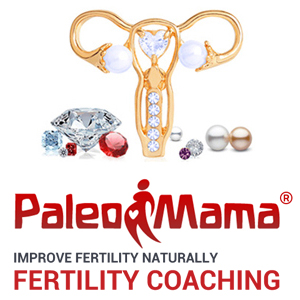Lifestyle and getting pregnant
Once, I was in the car, travelling with friends through the lovely landscapes of southern France. Most of them were highly educated women, singles over 30, ambitiously pursuing their careers and moving from one country to another with each new job…and all with a vague idea of changing their lifestyle some day – settling down, getting pregnant, and having a family.
As I happened to be the only one working in the cellular biology field, soon many questions were turned to me, and I found myself struggling to answer some really hard ones:
Why is getting pregnant after 35 sometimes not so easy?
What does my lifestyle have to do with biological clock?
Can’t science do something about that?
Maybe medicine in five or ten years will be able to change it?
My dear friends were (like myself once) so used to the fact that modern medicine saves lives and performs miracles where it once seemed impossible, that they refused to even consider the possibility that there might be things in Heaven and on Earth that a human hand could not change.

Women are born with all the eggs they will ever have. Image courtesy of sommai at FreeDigitalPhotos.net
From their questions, I first learned that many were not aware of the fact that women are already born with ALL the eggs they will ever have. This pool of eggs (ovarian reserve) becomes activated with the first menarche, continues for the next 20–30 years (individually set) and then runs out.
This is very different from the situation in men, where sperm cells are fully renewed every couple of months.
Having heard this, one friend (also in her early 30s) commented that she only recently became aware that women have something as weird as eggs and actually sees something undignified in that fact (and this being on a level that has nothing to with this topic, I must add, I agree with her).
Relating our lifestyle to getting pregnant can be a hard story to tell.
On that summer day, I tried hard to explain the meaning of cellular senescence, aging ovaries, declining DHEA levels, and mitochondrial mutations to these otherwise knowledgeable young women.
How many eggs does a woman have?
How can she activate and refresh her decades-old ovarian reserve? How to improve egg quality?
Why is it that freezing and thawing works so well for sperm, but not for the eggs?
What is FSH and what are FSH levels indicating? What are the symptoms of menopause?
As much as the explanations were making sense, still I felt that some of my friends were holding onto hope that a proper medical procedure will be invented soon to enable us to get pregnant after age 35, or whenever we decide to, and this funny conversation will become redundant.
Either naturally or via IVF, you are more likely to get pregnant if you improve the quality of your eggs.
References:
Axmon A, Rylander L, Albin M, Hagmar L. Factors affecting time to pregnancy. Hum Reprod. 2006 May;21(5):1279-84.
Bentzen JG, Forman JL, Larsen EC, Pinborg A, Johannsen TH, Schmidt L, Friis-Hansen L, Nyboe Andersen A. Maternal menopause as a predictor of anti-Mullerian hormone level and antral follicle count in daughters during reproductive age. Hum Reprod. 2013 Jan;28(1):247-55.
Greenseid K, Jindal S, Hurwitz J, Santoro N, Pal L. Differential granulosa cell gene expression in young women with diminished ovarian reserve. Reprod Sci. 2011 Sep;18(9):892-9.
Shostak, Marjorie (1981). Nisa, the life and words of a !Kung woman. Cambridge, MA: Harvard University Press.
Talukdar N, Bentov Y, Chang PT, Esfandiari N, Nazemian Z, Casper RF. Effect of long-term combined oral contraceptive pill use on endometrial thickness. Obstet Gynecol. 2012 Aug;120(2 Pt 1):348-54.


I read this with some trepidation, but not surprise. One of my friends has been putting off getting pregnant so she could pursue a career . This is perfectly understandable, since she spent a long time in school getting to where she is right now. She keeps saying she wants a baby, but has to get to a certain point at her job before she feels comfortable taking a break. She’s just entering her 30’s, and as I read this post I thought of her. Thankfully there is good information out there, and people like you who tell things the way they are. The next time we have the baby conversation – which is often -, I’ll refer her to you.